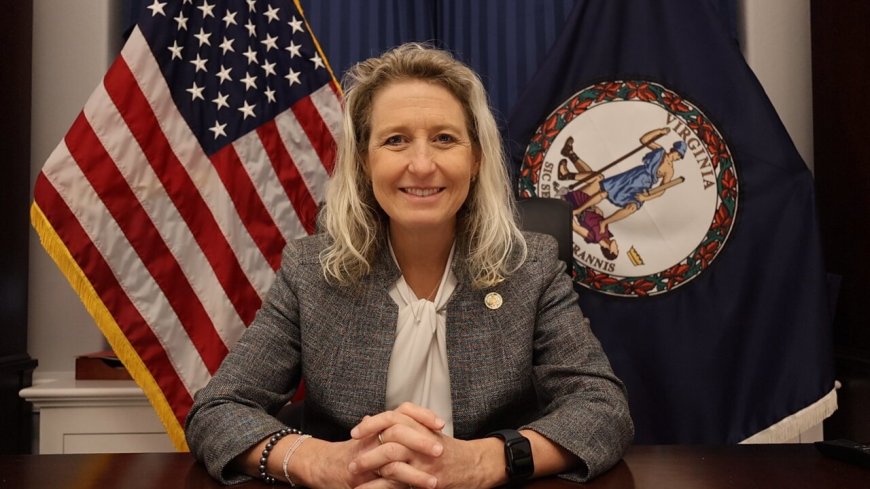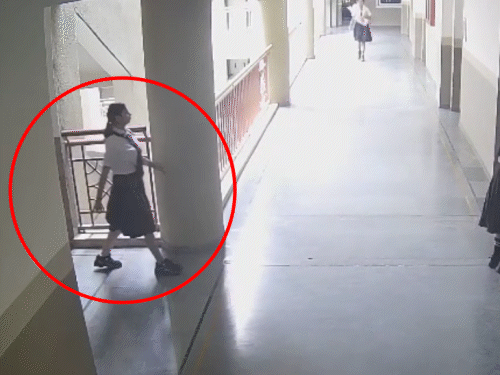Congresswoman Jen Kiggans Tours Wallops Island Spaceport, Pushing Virginia’s Role in Space Development
On August 18, 2025, Congresswoman Jen Kiggans visited the Mid-Atlantic Regional Spaceport on Wallops Island, highlighting Virginia’s role in space development and potential federal funding impacts.

Congresswoman Jen Kiggans (R-Va.) visited the Mid-Atlantic Regional Spaceport (MARS) on Wallops Island, Virginia, to emphasize the state’s growing importance in U.S. space exploration and development. The visit comes as lawmakers in Washington debate federal funding levels for NASA and commercial space initiatives that could directly benefit Virginia’s Eastern Shore.
A Spotlight on Wallops Island
The Mid-Atlantic Regional Spaceport, located adjacent to NASA’s Wallops Flight Facility, has steadily grown into a launch hub for both government and private missions. During her visit, Kiggans toured launch pads, met with engineers, and discussed expansion opportunities with facility officials.
Speaking to reporters on Monday afternoon, Kiggans said, “Wallops Island is not just a regional asset—it’s a national one. Virginia is playing a critical role in America’s future in space, and we must ensure strong federal investment continues.”
The spaceport has been a launch site for Northrop Grumman’s Antares rockets and several small satellite missions. With demand rising for low-Earth orbit launches and commercial payload deliveries, Wallops is positioning itself as a competitive alternative to Florida’s Cape Canaveral.
Virginia’s Economic and Strategic Role
Virginia leaders have long argued that Wallops Island’s location makes it ideal for supporting both NASA and commercial ventures. The facility provides access to orbital inclinations that are difficult to achieve from other launch sites, giving it a unique edge in the national space strategy.
Economic analysts note that expansion of Wallops operations could bring hundreds of new jobs to Accomack County and surrounding communities. For Virginia’s Eastern Shore, where fishing and agriculture dominate, the spaceport represents a major economic diversification opportunity.
As part of her visit, Kiggans highlighted how federal appropriations bills currently under negotiation in Congress could steer additional funding toward Wallops. A boost in infrastructure investment could enhance launch capacity, security, and research partnerships with local universities.
Federal Funding Implications
The FY2026 federal budget, currently in draft form, includes provisions for NASA’s Commercial Resupply and Artemis programs. While much attention has been on Florida and Texas, Virginia lawmakers are working to ensure Wallops Island does not get overlooked.
Kiggans indicated she would push for stronger bipartisan backing for spaceport upgrades. “Every dollar invested here strengthens America’s competitiveness in space while bringing good-paying jobs back to Virginia,” she said on August 18, 2025.
If approved, these funds could accelerate Wallops’ expansion, allowing more frequent launches and greater collaboration with private aerospace companies.
Balancing State and National Priorities
Virginia’s role in the space economy is also about national security. With the growing importance of satellite communications, defense-related launches, and space-based surveillance, facilities like Wallops are likely to see increasing military partnerships.
Industry experts point out that diversifying launch locations across the U.S. reduces risk, ensuring the nation is not overly dependent on a few spaceports. Wallops provides a strategic Atlantic coast option that can support both civilian and defense missions.
Looking Ahead
Kiggans’ visit comes at a time when space exploration is gaining renewed public interest, fueled by private sector innovation and NASA’s long-term Mars ambitions. By bringing attention to Wallops Island, she is signaling that Virginia intends to be at the forefront of this growth.
The next launch from Wallops, scheduled for September 12, 2025, will carry research payloads for NASA and private universities. For Kiggans and other Virginia leaders, each launch underscores the argument that the state deserves a bigger share of federal space funding.
What's Your Reaction?
 Like
0
Like
0
 Dislike
0
Dislike
0
 Love
0
Love
0
 Funny
0
Funny
0
 Angry
0
Angry
0
 Sad
0
Sad
0
 Wow
0
Wow
0







































































